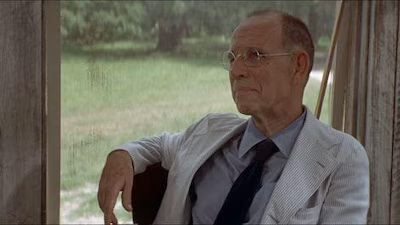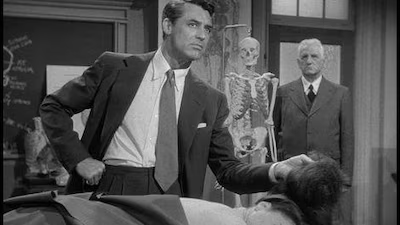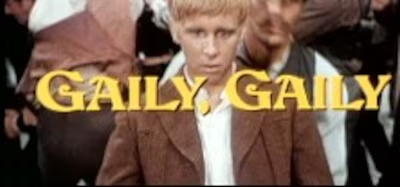Hume Cronyn

About
Biography
Filmography
Family & Companions
Bibliography
Notes
"To go on being an actor, you need sheer animal energy. If you can't restock your energy, you have to hide your lack of it." --Hume Cronyn ("The MGM Stock Company" 1972)
Lecturer at AADA (1938-39) and Actors' Lab in Los Angeles (1945-46)
Biography
The son of a prominent Canadian politician, Hume Cronyn made his stage debut with the Montreal Repertory Theatre in 1930 while still a student at McGill University and reached Broadway in 1934, playing the Janitor in "Hipper's Holiday." Short and wiry, he gained a reputation for excellence onstage, adroitly portraying ordinary people, and would later prove his versatility by branching into directing, producing and playwriting. An early appearance on the new medium of TV (a 1939 NBC presentation of "Her Master's Voice") preceded Cronyn's first feature role as the literal-minded, snooping, armchair detective-neighbor in Alfred Hitchcock's understated thriller "Shadow of a Doubt" (1943). He also collaborated on the screenplays for Hitchcock's "Rope" (1948, with Arthur Laurents) and "Under Capricorn" (1949, with James Birdie), as well as playing the ship's radio operator in the director's "Lifeboat" (1944).
Although Cronyn garnered a Supporting Actor Oscar nomination as the dull-witted friend who helps Spencer Tracy avoid the Gestapo in "The Seventh Cross" (1944, his first film with wife Jessica Tandy), roles like his Nazi collaborator in "The Cross of Lorraine" (1943) and the despicably ruthless prison guard captain in "Brute Force" (1947) marked him as a baddie. In an effort to escape such typecasting, he turned down the plum part of the sadistic killer played by Richard Widmark in "Kiss of Death" (also 1947) and successfully broke out of the villain mold to enjoy a varied film acting career, playing everything from a jealous physician in "People Will Talk" (1951) and Roosevelt's gruff counselor Louis Howe in "Sunrise at Campobello" (1960) to half of a bickering old homosexual couple in "There Was a Crooked Man" (1970) and Warren Beatty's editor in "The Parallax View" (1974). Cronyn's Tony-winning stage performance as Polonius opposite Richard Burton's "Hamlet" (1964) made it to the screen via a filmed record of the Broadway production directed by John Gielgud.
Cronyn's directing debut at the helm of Tennessee Williams' one-act play "Portrait of a Madonna" starred wife Tandy and led directly to her landing the role of Blanche in Williams' "A Streetcar Named Desire" on Broadway. The two first acted together on stage in Broadway's "The Fourposter" (1951), a play they would eventually perform more than 600 times over the years. Subsequent plays like Edward Albee's "A Delicate Balance" in the 60s, "The Gin Game" in the 70s and "The Petition" in the 80s established them as the successors to Alfred Lunt and Lynn Fontanne as the pre-eminent married acting couple of the American theater, culminating in a shared Special Lifetime Achievement Tony in 1993.
"Honky Tonk Freeway" (1981) reunited them for the first time in features since 1946, and over the next 13 years, Tandy and Cronyn would act together in five more films, as Glenn Close's parents in "The World According to Garp" (1982), as a married couple in "Cocoon" (1985), its 1988 sequel and "*batteries not included" (1987) and their final onscreen appearance as former lovers in "Camilla" (1994), released after Tandy's death. In addition to televised version of their stage work, Cronyn and Tandy co-starred in the short-lived series "The Marriage" (NBC, 1954) and their final small screen collaboration was in the poignant CBS "Hallmark Hall of Fame" presentation "To Dance With the White Dog" (1993), for which he won one of this three Emmy Awards.
Cronyn began his association with Susan Cooper, co-writing "Foxfire," the 1980 Broadway play co-starring Tandy and him. Cronyn and Cooper continued their collaboration on "The Dollmaker" (ABC, 1984), starring Jane Fonda in her TV-movie debut, which earned the pair Writers Guild and Christopher Awards for their teleplay. It was at Cooper's urging that he wrote "A Terrible Liar," his 1991 autobiography chronicling the Cronyns' life together through 1966, and they expanded on their partnership (which also yielded the as yet produced screen adaptation of Anne Tyler's novel "Dinner at the Homesick Restaurant") by marrying in July of 1996.
After taking some time off following Tandy's death, Cronyn resumed working, portraying the dying patriarch to Diane Keaton and Meryl Streep in "Marvin's Room" (1996), then acting on TV in the Showtime movies "12 Angry Men" and "Horton Foote's Alone" (both 1997) and the CBS miniseries "Seasons of Love" (1998). Home movies shot by Cronyn and Tandy on their journey to East Africa in 1966, augmented by footage from his return there in 1995, became "An African Love Story" (Disney Channel, 1996).
Cronin close out a long and enviable career before the cameras with appearences in several made-for-TV movies, including the heartwarming Christmas tale "Santa and Pete" (1999), in which he played St. Nicholas, and "Off Season" (2001), directed by his on-stage "Glass Menagerie" co-star Bruce Davison. Cronin passed away in 2003 at the age of 91.
Filmography
Cast (Feature Film)
Writer (Feature Film)
Music (Feature Film)
Misc. Crew (Feature Film)
Cast (Special)
Producer (Special)
Misc. Crew (Special)
Cast (TV Mini-Series)
Life Events
1930
Stage acting debut at Montreal Repertory Theatre (while at McGill)
1931
Professional stage debut, "Up Pops the Devil" with Cochran's Stock Company at the National Theatre, Washington, DC
1931
Immigrated to USA
1934
Broadway acting debut in "Hipper's Holiday"
1935
Breakthrough stage role as the the lead in the road company of George Abbott's Broadway success, "Three Men on a Horse"
1939
TV debut as Ned Farrar on "Her Master's Voice" (NBC)
1943
Screen acting debut in "Shadow of a Doubt", first of four feature collaborations with director Alfred Hitchcock (two acting, two writing)
1944
Earned Oscar nomination as Best Supporting Actor for his turn in "The Seventh Cross"; wife Jessica Tandy's first appearance in an American film
1946
Stage directing debut, "Portrait of a Madonna" in Los Angeles, starring Tandy; this one-act play by Tennessee Williams led directly to her playing Blanche Du Bois in Williams' "A Streetcar Named Desire" on Broadway
1948
Wrote first screen adaptation, "Rope" (from Patrick Hamilton's play), directed by Hitchcock
1948
Debut as TV series producer (with Donald Davis) and director (with Fred Carr and Ralph Warren), "Actors Studio" (initially aired on ABC, later on CBS)
1949
Adapted "Under Capricorn" (from Helen Simpson's novel), directed by Hitchcock
1950
Broadway directing debut, "Now I Lay Me Down to Sleep"
1951
First time acting on stage opposite Tandy in Broadway production of "The Fourposter", a play they would end up doing more than 600 times over the years
1951
First of three films directed by Joseph L Mankiewicz, "People Will Talk"
1953
Regular actor on radio series, "The Marriage"
1954
TV series debut as actor (with Tandy), "The Marriage" (NBC), also produced
1960
Portrayed Louis Howe in "Sunrise at Campobello"
1963
First time playing his favorite role (Harpagon) in Moliere's "The Miser" at Tyrone Guthrie Theatre, Minneapolis, MN
1964
Played Polonius in "Hamlet" (on stage and film), directed by John Gielgud and starring Richard Burton in the title role; won Tony Award as Featured Actor in a Play
1966
Starred opposite Tandy in Edward Albee's "A Delicate Balance" on Broadway
1969
Lost an eye to cancer (date approximate)
1970
Last film with Mankiewicz, "There Was a Crooked Man"
1973
Starred opposite Tandy on Broadway in "Noel Coward in Two Keys"
1974
Acted in first of three movies directed by Alan J Pakula, "The Parallax View"
1978
Co-produced (with Mike Nichols) and starred in "The Gin Game" opposite Tandy on Broadway and on tour
1980
With Susan Cooper, co-wrote play, "Foxfire"; co-starred with Tandy on Broadway
1981
First feature film with Tandy in 35 years, "Honky Tonk Freeway"
1984
Appeared opposite Tandy in PBS presentation of "The Gin Game"
1984
Co-wrote (with Cooper) award-winning teleplay, "The Dollmaker" (ABC), Jane Fonda's TV-movie debut; adapted from Harriette Arnow's novel
1985
Scored big success in Ron Howard's "Cocoon", featuring an all-star cast of oldsters including Don Ameche (who won a Supporting Actor Oscar), Maureen Stapleton and Tandy
1986
Last Broadway show to date, "The Petition", co-starring Tandy
1987
Starred opposite Tandy in "*batteries not included"
1987
With Tandy, reprised stage roles for a CBS "Hallmark Hall of Fame" presentation of "Foxfire"
1988
Appeared in sequel (with Tandy), "Cocoon: The Return"
1989
Teamed with Vincent Gardenia for the HBO movie "Age-Old Friends"; received first Emmy Award; daughter Tandy Cronyn co-starred
1992
Earned second Emmy as the grandfather in "Neil Simon's Broadway Bound" (ABC)
1993
Acted opposite Tandy in the "Hallmark Hall of Fame" CBS TV-movie "To Dance With the White Dog"; earned an Emmy for his performance
1993
Last film with Pakula, "The Pelican Brief"
1994
Last screen appearance with Tandy, playing her former lover, in "Camilla"; released after her death
1996
Home movies shot by Cronyn and Tandy on their journey to East Africa in 1966, augmented by footage from his return there in 1995, became "An African Love Story" (Disney Channel)
1996
Had featured role in "Marvin's Room"
1997
Acted in Showtime movies "12 Angry Men" and "Horton Foote's Alone"
1998
Appeared in the CBS minseries, "Seasons of Love"
Photo Collections
Videos
Movie Clip












Trailer












Family
Companions

Bibliography
Notes
"To go on being an actor, you need sheer animal energy. If you can't restock your energy, you have to hide your lack of it." --Hume Cronyn ("The MGM Stock Company" 1972)
Lecturer at AADA (1938-39) and Actors' Lab in Los Angeles (1945-46)
He received the Commedia Matinee Club Award for "The Fourposter" in 1952.
Given the Barter Theatre Award for Outstanding Contribution to the Theatre in 1961
Presented with the Herald Theatre Award for "A Delicae All!" in 1972
Awarded Brandeis University's Creative Arts Award for Distinguished Achievement (1978)
Inducted into the Theatre Hall of Fame in 1979
Received National Press Club Award in 1979
Given the Commonwealth Award for distinguished service in the Dramatic Arts (1983)
Awarded the Humanitas Prize from the Human Family Institute (1985)
Received Alley Theatre Award in recognition of Significant Contribution to the Theatre Arts (1987)
Received honorary LL.D from the University of Western Ontario in 1974
Awarded honorary LHD from Fordham University (1985)
Decorated with the Order of Canada
"Audrey Wood, Tennessee Williams' agent was a friend of mine. I said, 'I'm looking for something to produce, and if I find the right thing, I think I can find the money.'"She went into a back office and brought out a thin blue folder. She said: 'This isn't a play, it's three one-acts by somebody you never heard of named Tennessee Williams. He's got serious eye trouble and he's bicycling around the South, and I expect a telegram any day saying he's been killed. He needs money.'
"I read the plays, and they were magical, and I took an option on them. I only needed $11,000 for a Broadway production. Can you imagine that? And I couldn't raise the $11,000. 'Tennessee who? That's nobody's name. One-acts? Forget it.' I went back and told Audrey: 'Renew the option, and I'll throw in six more one-acts he's written.' I took them but never got them on. Eventually they were published as a book ... "I got [the Actors Lab Theater in L.A.] to do three of the plays; Jessie [Jessica Tandy] did 'Portrait of a Madonna'. I remember [Charlie] Chaplin coming backstage one night. Irene Selznick, who produced 'Streetcar', came to see it, and so did Elia Kazan, who directed 'Streetcar'. And that's how Jessie became Blanche Du Bois." -- Hume Cronyn to New York Newsday, July 9, 1995.











